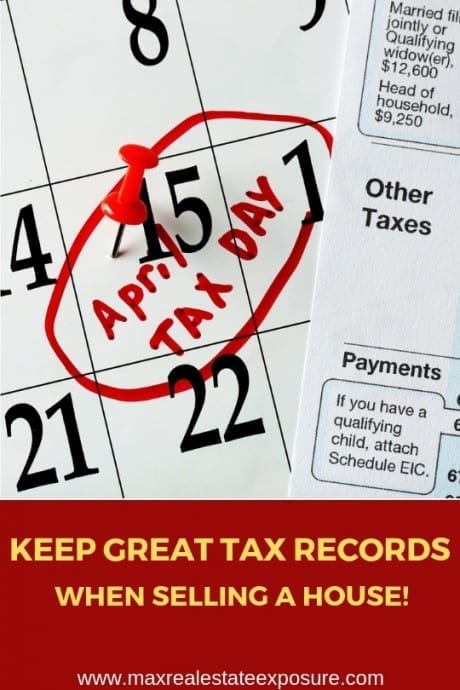What To Do After Selling Your House
 My homeowners say to themselves, “I sold my house, now what?”
My homeowners say to themselves, “I sold my house, now what?”
What to do after selling a house can be mysterious when you’ve never done it before.
Selling a home is usually not something that most folks get excited about. The feeling is entirely understandable, as it can take a lot of time and effort from a homeowner.
You go through a lot of trouble to get the home ready for the market and then have to grin and bear it as tons of people trample through your house at random times.
At times you feel like your privacy has been completely invaded.
Recently I talked about some of the intelligent things to do before listing a home for sale. These home-selling tips were designed to make the process go far smoother.
Typically if the advice is followed to a tee, you will sell your home quicker and for more money.
What we are going to discuss now is intelligent things to do after selling your home!
It can feel pretty amazing to have your home sold finally. Once the keys are given to the buyer and the escrow is closed, it can feel like a significant weight is finally off your shoulders.
However, there are still tasks that need to be taken care of if you want to act smart financially. There are also things to do after selling a house that becomes critical.
Otherwise, you risk missing out on opportunities and creating more headaches.
Without further fanfare, look at all the tasks after selling your house in various time stages.
Things to Do After Selling a House, But Before Closing
Research and Contact a Mover
Once your home has gone under contract and moved to a pending status, it is time to find one of the best moving companies.
It is highly recommended that you take the time and find a great mover to work with, like interviewing a real estate agent.
The price of movers can vary dramatically, as can what is offered and the services provided. You should not only do your research but seek out some guidance from friends, relatives, and your real estate agent.
They should have a handle on who is highly recommended in the area. Also, be sure to read our top moving tips for a smooth move!
Get Rid of Any Unwanted Items
Hopefully, you staged your home and removed many unwanted items by decluttering. If not, now is your last chance to eliminate things you don’t need.
The best method for removing items you no longer want is to have a donation pick. Many charitable organizations will visit your home and take donations. It is an excellent way of helping those who need it.
Make Sure You Change Your Address
 Making sure to change your address with everyone is a critical task! Changing addresses is one of the first things to do when you’re confident the sale will close.
Making sure to change your address with everyone is a critical task! Changing addresses is one of the first things to do when you’re confident the sale will close.
At the most basic, you should notify the post office of your change of address at least a few weeks before you move.
However, you really should make a list of all the people, companies, and organizations that may try to contact you through the mail.
Use our change of address checklist, and then take the time to communicate with all of them to notify them of your change of address.
One of the most influential groups you should not forget to send a change of address to is the IRS!
The last thing you want is any tax information going to the wrong place.
Forward Magazine Subscriptions
Along the same lines, ensure you forward all your magazine subscriptions to your new address.
Cancel or Transfer Bank Accounts
Before you go to the closing of your home, make sure you cancel or transfer your bank account to wherever you are headed.
Transfer Your Medical Subscriptions
If you have any medical conditions, make sure you scope out a local pharmacy wherever you go and have any necessary prescriptions transferred there.
Take Home Services out of Your Name
Take all the services in your home out of your name. You want to make everything as cut and dry as possible. Part of this is ensuring you are only paying for the things YOU are using.
Contact the cable company, utilities, phone company, and any other company that provides services to your home. Tell them that you will no longer be responsible for any fees accrued after the date you are moving out and that you need your account closed at that time.
Cancel Your Health Club Membership
If you have a gym membership, and it is not a national chain, make sure you cancel it and possibly get a refund of any unused time left on the contract.
If it is a national chain, ask the gym owner to change over your membership to your new location.
Give Away Unnecessary Things When Moving to a Condominium
If you are buying a condo and don’t require a lawnmower or are moving to a warm weather climate and don’t need your snow blower anymore, sell them or give them to a friend who could use them.
Get a Final Reading Done When Your Home is Serviced By Oil
Has the oil tank read been completed? If oil services your home, it is customary in many locations that you will be able to get reimbursed by the buyer for the oil left in the tank when you close.
What you are going to need to do is contact your oil service provider and let them know you have sold your home. Ask them for a final oil reading, and they will come out and read the oil left for you and provide you with a receipt.
This becomes your proof at closing and allows the buyer to give you proper payment.
Gather Essential Paperwork to Provide to The Buyer
You should provide the necessary home ownership paperwork to the buyer. While this is not a requirement, it is a great gesture, and the new owner will love it.
Some things that would be helpful to the new owner include any manuals for appliances, any warranties for things you might have replaced, like a water heater, and a list of contractors you have used.
This is also great as part of the real estate marketing to help sell the home! Buyers will be thrilled if you take the time to put together people you know and trust who have done an excellent job for you.
Examples include your landscaper, house cleaner, handyman, etc.
As you can see, there are quite a few things to do after selling a home before closing. What about after the closing?
Things to Do After The Closing
 There will be more things you need to do after your closing.
There will be more things you need to do after your closing.
Keep Great Tax Records
Keep your paperwork in order. After all the paperwork you have gone through to sell your home, it might be tempting to dispense with all of it now that the dust has settled. This is not the best idea.
All of the paperwork related to the sale of the house should be available for tax time because you will need proof of the expenses you paid and the money you made from the sale.
Even after your tax return is filed, you will still want to keep these records if the IRS comes back to audit you.
Know The Current Real Estate Tax Laws
Pay attention to tax laws. Tax laws can and do change frequently. This is a frustration that everyone has to deal with, but there are sometimes advantages to it as well.
If the tax laws change in your favor – such as allowing you to keep a higher percentage of the profits from the sale of your home – you certainly want to be aware of it.
Even if changes work against you, it is better to know about them and plan accordingly. Remember that you can currently exclude up to $250,000 in profits if you are single and $500,000 if you are married as long as the home is your primary residence.
You must also have lived in the house for two out of the last five years. See capital gains when selling a home for a complete explanation of the tax law.
Know The Home Improvements You’ve Made to Your Home
Keep records related to home improvement. The IRS may allow you to use home improvement expenses to improve your tax situation – especially if you have a good-sized capital gain.
However, you will need documentation of all the improvements you paid for while you owned the home if you will take advantage of this.
Audits do happen, and you do not want to be unprepared if it happens to you. Keep in mind there is a difference between home improvement and general maintenance as far as the IRS goes.
Generally speaking, a home improvement will add value to your home. Repairs for your home, however, are considered general maintenance.
A perfect example would be replacing your roof. A roof replacement is an improvement. A few blown-off shingles would be considered a repair.
House Logic does an excellent job of explaining this in what is considered a home improvement for tax purposes.
Look Over Your Closing Statement Carefully
Go over the settlement statement with a fine-toothed comb. While your real estate agent, the buyer, and the other companies you deal with during your sale may all be terrific, mistakes still happen.
Sometimes people try to make a little extra if they can get away with it. Make sure that all the payoff amounts are correct on any mortgages, that any extras your agent promised you are there and that all the fees listed are costs you knew about beforehand.
No surprises are allowed; if they are, they should be explained to you in detail. There may also be suggestions to leave certain things off the settlement statement.
Do not agree to this without discussing your legal risks with a real estate attorney beforehand.
Put The Proceeds From The Sale in a Money Market Fund or Bank Account
Many home sellers wonder what they should do with their home sale proceeds.
Invest your proceeds in a money market fund or another safe investment vehicle. When you are selling a home and not immediately reinvesting your profits by purchasing another house, it makes sense to have your money where you can get a hold of your funds quickly.
If you get a good chunk of money out of the sale of your home, you do not want to store it under the mattress or a tomato plant somewhere.
You want to put it where it’s relatively safe, but that will also yield some return. Money market mutual funds are an attractive option for many people who sell their homes.
They give you a decent return on your investment yet still provide you with access to your money if you need it – such as when you buy your next home.
Take it Slow When Buying Another Home
Take your time buying another home. If you have the patience and are willing to rent for a little while, you will be more likely to find the home of your dreams at a reasonable price.
Desperation and a ticking clock are not beneficial when making a sizable financial deal – such as buying a home.
Taking some time to make sure you have the right Realtor, that you are looking in the area you want to live in, and getting the kind of house; you will be happy with is good business.
Consider The Down Payment on Your Next House Carefully
Think about your down payment strategically. While it may seem obvious that the bigger the down payment you have, the better off you will be in your next home purchase, this is not necessarily true.
Depending on where you are in life, it may be financially beneficial to stick with the standard 20% and put your extra money elsewhere so it can bring in more significant returns.
This is especially true if you are a younger home buyer with a little more tolerance for risk.
Things to Do After Purchasing Your New Home
Once you have bought another home, there are some excellent things to consider. These are tasks to consider.
Change Your Locks at The New House
 Changing the locks at your new home is wise. Even if the area where you have purchased your new home has a low crime rate, it is still highly advisable to modify the locks.
Changing the locks at your new home is wise. Even if the area where you have purchased your new home has a low crime rate, it is still highly advisable to modify the locks.
Who knows who has the keys at this point? The prior owner’s friends, relatives, babysitter, etc., could all have access to your home. Don’t take a chance.
Get Change of Address Labels
Get new changes to address labels. Make sure you again let everyone know where you have moved to.
Like you did before selling your home, you will want to ensure the post office knows you are living in your new place.
Contact Your New City Hall
Another essential place to contact is the local city hall. You want to do this to ensure you get any relevant documents the town could send you, especially a current tax bill!
Get familiar with your new surroundings and scope out some crucial things like local convenience stores, restaurants, the bank, the post office, and various entertainment forms you may be interested in.
If you are moving with pets, locate the local veterinarian, pet hospital, and any parks you may consider walking your dog.
Again, just as you did when you sold, get all your utilities in place, especially cable television, if you have kids!
Make sure you know in advance where the local hospital is located. The last thing you want to do is be scrambling in a new environment when your head is not on straight trying to find medical attention.
Final Thoughts on What to Do After Selling a House
If you follow the advice provided from start to finish, you will be far less stressed with the home-selling process! You will be prepared to move on to the next stage in your life.
If you have any real estate needs in the Metrowest, Massachusetts area, feel free to reach out for assistance.
About the author: The above Real Estate information on I sold my house now what: things to do after selling was provided by Bill Gassett, a Nationally recognized leader in his field. Bill can be reached via email at billgassett@remaxexec.com or by phone at 508-625-0191. Bill has helped people move in and out of many Metrowest towns for the last 37+ Years.
Are you thinking of selling your home? I am passionate about real estate and love sharing my marketing expertise!
I service Real Estate sales in the following Metrowest MA towns: Ashland, Bellingham, Douglas, Framingham, Franklin, Grafton, Holliston, Hopkinton, Hopedale, Medway, Mendon, Milford, Millbury, Millville, Natick, Northborough, Northbridge, Shrewsbury, Southborough, Sutton, Wayland, Westborough, Whitinsville, Worcester, Upton and Uxbridge MA.

